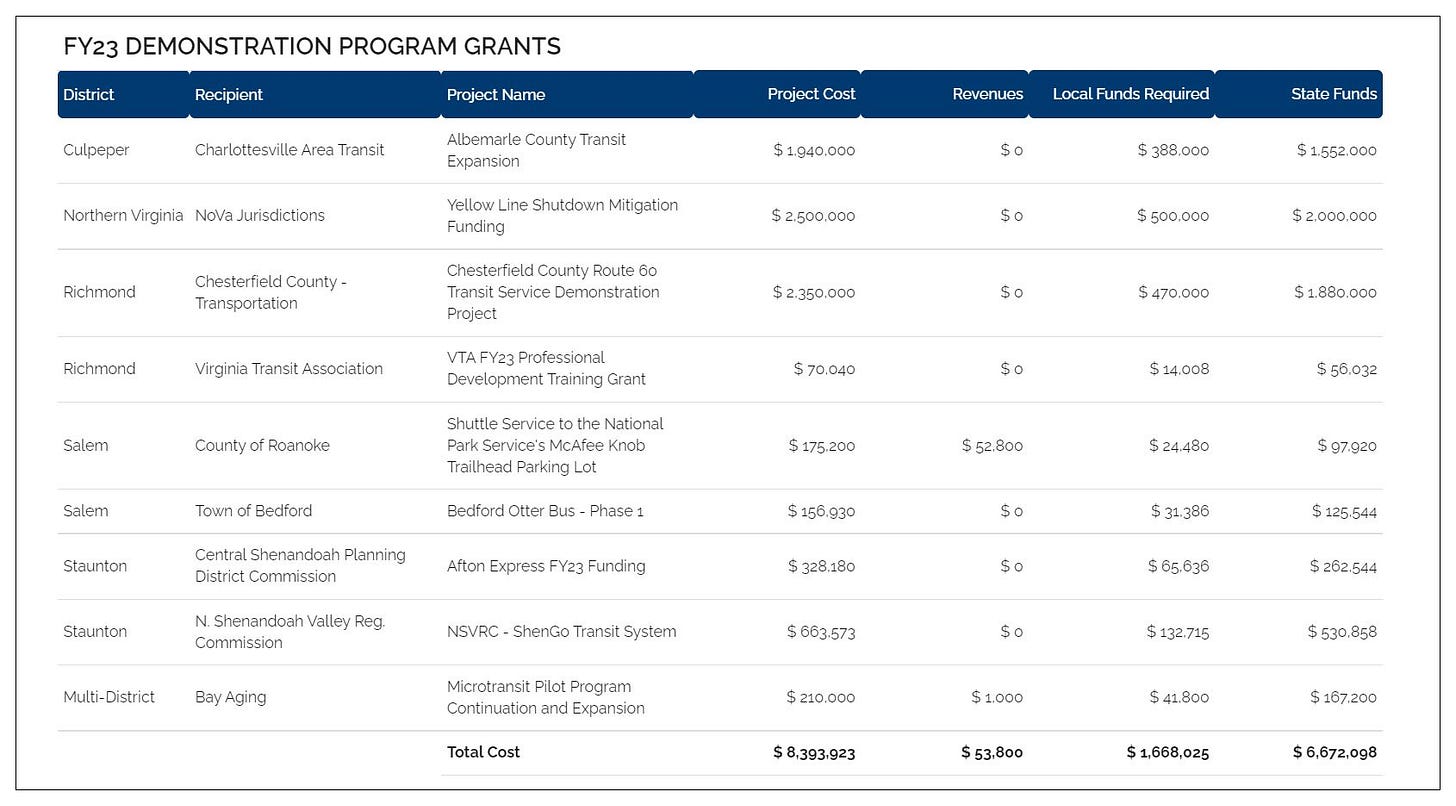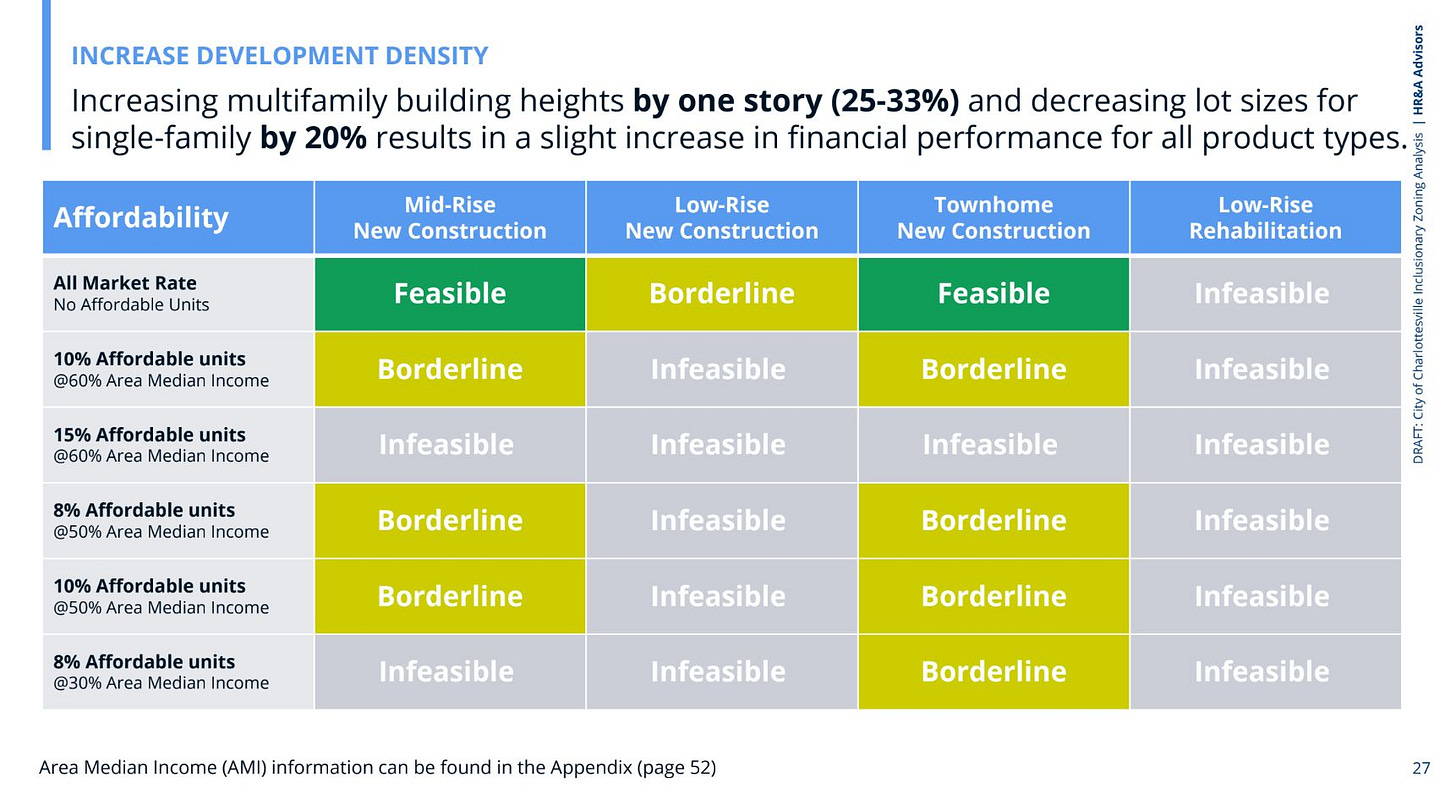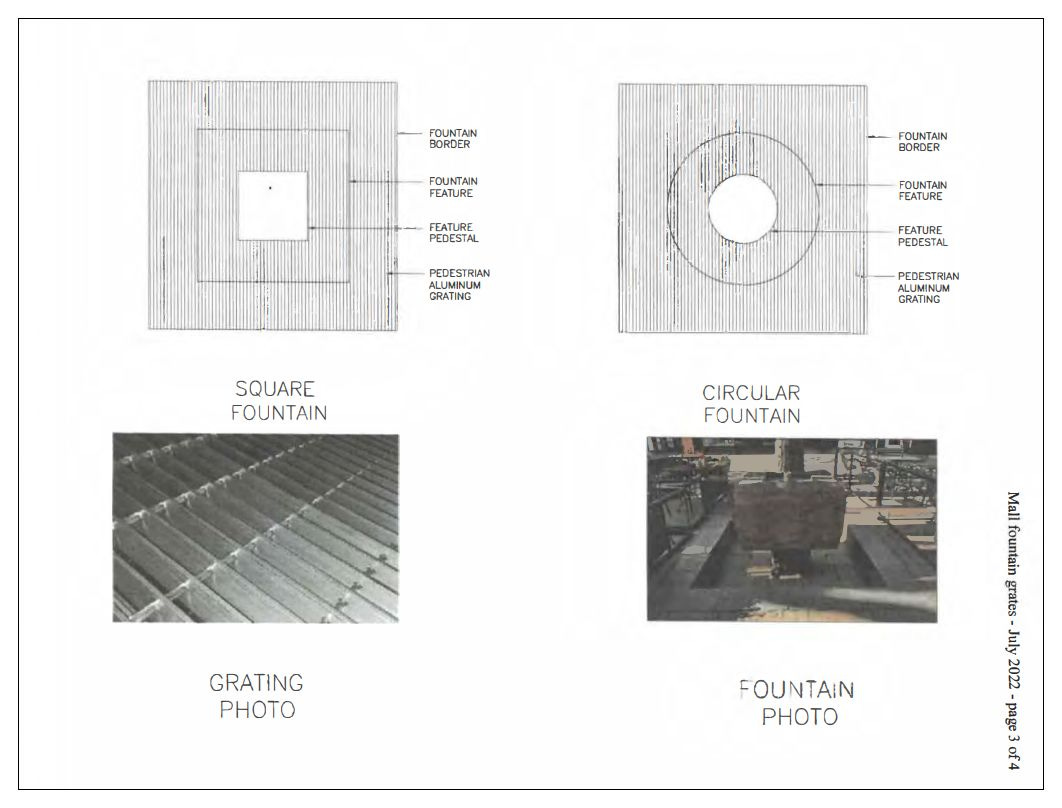Four out of five Wednesdays are not this one, and this is not yet the final such day of this eight month. To make today slightly more special, we can call it Day 236, as good an occasion as any for episode 421 of Charlottesville Community Engagement, an occasional look and listen at a few things happening in local government in the area in and around the zip code 22903 or 22911 or any number of similar numbers originating from the same metropolitan statistical area. I’m Sean Tubbs, one of around 250,000 inhabitants of the MSA.
On today’s show:
Charlottesville Area Transit to receive grant from Virginia Department of Rail and Public Transportation to operate a pilot on-demand project in Albemarle County
The president of Mary Baldwin University will step down next June
Details on proposed rules to encourage creation of below-market housing units in Charlottesville
Charlottesville’s Board of Architectural Review declines to allow the city’s Park and Recreation Department to install metal grates on the three fountains on the Downtown Mall
First shout-out: The Plant Northern Piedmont Natives Campaign
Since the very beginning of this newsletter, one long-time Patreon supporter has used his shout-out to draw your attention to the work of the Plant Northern Piedmont Natives Campaign. The campaign is a coalition of grassroots partners including motivated citizens and volunteers, partner organizations, and local governments who want to promote the use of native plants. Summer is in high gear and pollinators are active! Want to learn more? Visit plantvirginianatives.org to download Piedmont Native Plants: A Guide for Landscapes and Gardens.
Charlottesville Area Transit to operate on-demand demonstration project in Albemarle
The Virginia Department of Rail and Public Transportation has awarded a $1.552 million grant to Charlottesville Area Transit to operate a demonstration project for microtransit service in Albemarle County. That includes a match of $388,000 in local funds. The service could take up to a year to get underway, according to Lucinda Shannon, a transportation planner with the Thomas Jefferson Planning District Commission.
Similar projects have been implemented at various stages across the nation. The city of Wilson, North Carolina with a population of around 50,000 people replaced its fixed route service with on-demand shuttles in September 2020.
Hampton Roads Transit is experimenting with an on-demand service through December of this year with operations in Norfolk and Virginia Beach.
“You can ride anywhere within each service zone, but not between zones,” reads a website for the on-demand service.
The Albemarle County pilot will create on-demand transit zones in Pantops and the Places29-North area.
The demonstration funds have been awarded at the same time that the Thomas Jefferson District Commission continues to take input on the Regional Transit Vision. The survey closes on September 15, 2022. Also related is a governance study that will soon be conducted to inform how a more robust transit system might be funded and administered in the future.

Mary Baldwin’s president to retire
The President of Mary Baldwin University in Staunton has announced she will retire at the end of next June after two decades in the position. Pamela Fox has led the school through several years of transition, including a name change in 2016 to reflect the institution’s addition of co-educational undergraduate opportunities as well as advanced degrees.
According to a release, Fox’s tenure as president is the longest in the school’s 181-year history.
“Fox has spearheaded numerous major innovations, including launching a successful new branch campus and college for healthcare professionals, transitioning from a college to a co-ed university, [and] emphasizing a strong commitment to diversity and access to higher education,” the release states.
A search committee will be formed with the intent of naming someone by next spring to serve as Mary Baldwin University’s tenth president.

Proposed rules for inclusionary zoning in Charlottesville ready for review
The summer of zoning review continues in Charlottesville with the release this week of a document that is intended to increase the number of required homes that must be rented or sold at below-market levels. HR&A Advisors has put together an analysis and recommendations for how a “inclusionary zoning” policy would work.
“The affordable housing plan adopted in March 2021 calls for the city to develop an [inclusionary zoning] policy that supports Charlottesville’s housing needs and meets the needs that the market will otherwise now address,” said Callahan Seltzer, principal with HR&A, in a video sent out with a press release.
Since 2007, the city has had an affordable housing fund in place to subsidize units. In March, Seltzer told Council that nearly $46.7 million has been disbursed through this fund, though the city has struggled to keep track of the funding. For instance, there has been no housing coordinator in place for over two years.
The affordable housing plan also calls for city taxpayers to pay $10 million a year toward projects and programs. The Comprehensive Plan adopted in November calls for more residential density across the city to allow for more units, and the inclusionary zoning policy is intended to prevent all of them from being market-rate.
“HR&A Advisors and the city has recommended an inclusionary zoning policy that requires affordable housing for any housing development that includes more than ten units and offers incentives to any development with nine of less units to also include affordable housing,” Callahan states in the video.
Watch the video:
HR&A Advisors are suggesting the city aim to provide the affordability level at 60 percent of area median income with a term of 99 years. The affordable units must be equal in size to the market rate units and density bonuses and parking reductions would also be part.
“There will be a density bonus of 25 percent for units ten or more, and there will be a two unit bonus in General Residential areas and a four unit bonus in the medium intensity zones,” Callahan said. “In addition there is a parking reduction of up to 50 percent.”
The full video runs for 45 minutes and provides a detailed analysis of how the incentives may balance out the need for a property owner to charge higher rent. One page states clearly subsidizing at high levels costs more money. One chart appears to state that it would be infeasible to rehabilitate existing single family homes to achieve affordability, and that instead new construction of buildings with taller heights could accomplish the goal.
Public comment on the Draft Zoning Approach and Diagnostic will be taken through September 6. City Council and the Planning Commission will hold a work session on September 27. Here’s the survey form in English and here’s the survey form in Spanish.

Second shout-out: Livable Cville event on zoning rewrite
In today’s second Patreon-fueled shout-out, Livable Cville wants you to mark your calendar for August 31 for an educational talk about the next steps in the Cville Plans Together initiative. They’ve invited James Freas, the city’s Director of Neighborhood Development Services, to talk about the rewrite of the city’s zoning ordinance in an online webinar. The talk will include a presentation on the Draft Zoning Diagnostic & Approach Report and the soon to be released Market Analysis/Inclusionary Zoning Study. The talk begins at 5:30 p.m. and will include a question and answer period. Sign up to get your place at the virtual table for Livable Cville’s Update and Next Steps for the Cville Plans Together initiative.
Board of Architectural Review denies grates for Mall fountains
The city of Charlottesville has begun moving ahead with changes to the city’s Downtown Mall, which will turn 50 in the year 2026. Last week, the Board of Architectural Review weighed in on one change intended to make parts of it a little safer.
“This is a request from the city of Charlottesville to install metal grates at the three small fountains located on the Downtown Mall,” said Jeff Werner, the city’s historic preservation planner. “The situation we have is that because of issues related to pedestrian safety and ADA accessibility concern, the decision was made to install grates.”
The mall was designed by landscape architect Lawrence Halprin and a multimillion renovation was conducted in 2009. The city’s Parks and Recreation Department oversees the mall’s maintenance, including street furniture and trees. The BAR is often asked to weigh in on whether new features are consistent with Halprin’s vision.
“This is a must-do situation as far as the decision from the city goes, that something must be done,” Werner said.

Werner has also been working on a nomination to recognize Halprin’s design itself on the National Register for Historic Places. There’s also a new downtown committee to look at various issues related to the Mall.
“The work of this committee will help us move away from kind of piece-mealing our approach to the various issues as they come up,” said James Freas, who serve as Werner’s boss as Director of Neighborhood Development Services. “And that we can move towards a more proactive stance and a coordinated stance, something that looks like a management plan for the future.”
The fountains are currently turned off, but they are operational according to Parks and Recreation’s Deputy Director Riann Anthony.
“I know because previously before COVID you had a few gentlemen that actually put soap in it so every day you would see bubbles coming out of the big fountain,” Anthony said.
Two of the fountains are within close proximity of outdoor cafe spaces rented by restaurants. There’s also Central Place, which has barricades with chains intended to keep people out. Grates are being recommended to still allow people to interact and touch the water in the fountain.
“In my conversations with the ADA coordinator, what he’s referred to in particular is the concern about a change in grade with no notification to somebody that’s visually impaired,” Freas said.
Anthony said it will be about two to three months before the grates can be designed and installed. After that, the fountains can be turned back on.
Members of the BAR suggested that the grates be considered temporary until a greater solution to the ADA issues be worked out.
“I am really skeptical about the claim that this is an ADA issue,” said BAR Chair Breck Gastinger, himself a landscape architect. “There’s really nothing in ADA that I can point to that this would be in violation of. There’s very clear visual difference before the drop. There’s a textural difference. If you want to the Virginia Building Code, even that drop is allowable by the Virginia Building Code.”
Gastinger said he thought the barriers that delineate cafe space near these fountains are much more serious impediments to accessibility. He said the purpose of these fountains is misunderstood and putting grates on them would be against Halprin’s intent.
“This is a fountain that has several parts,” Gastinger said. “It is a lifted up volume of stone, a really massive piece of stone that is hovering above the ground. The water doesn’t shoot out of it. It spills out over the edges and it’s given a texture by the shape of the stone and it falls into a basin. The basin is actually part of that design feature. Seeing the water land in the basin is the way that it was designed and I feel it was designed to be sat next to, for people even to be encouraged to put their feet into.”
Gastinger said the fountains are a sign that open space belongs to everyone.
“The promise that was made between the city and its citizens with the construction of the Downtown Mall has been compromised and the fact that the fountains have not even been on I feel is a failure of the City to live up to that promise,” Gastinger said.
For many years, there were no outdoor cafe spaces on the Downtown Mall. That practice began as City Council began to rent out space to restaurants on an individual basis. The Board appeared headed toward deferring a vote rather than voting to deny the grates altogether.
Werner said there would be opportunities to talk about those bigger issues, but the city needed an answer to proceed.
“If you all defer it, and you can, some very, very clear direction needs to be sent in what you’re thinking,” Werner said. “It can’t just be ‘go try again.’”
BAR member Cheri Lewis suggested a compromise of allowing the grates at the two smaller fountains on a temporary basis.
“Only because of the access when people cut through and I’d still like them to be opened but I can see that design solution working there,” Lewis said.
However, Werner said the request from city management was an up or down vote. Lewis made a motion to deny, and that motion passed unanimously. The Parks and Recreation Department can appeal the decision to City Council.
Housekeeping for episode 421:
The summer slowdown at Town Crier Productions is somewhat in effect, but I am ramping up for more editions of this newsletter in the days to come. I have spent a couple of days on the business end, thanking new subscribers who have opted to pay. I write to everyone who does, and if you want to know what that looks like, you know what to do!
If you subscribe, whether it’s $5 a month, $50 a year, or $200 a year, Ting will match your initial payment. And, if you sign up for their services through this link you’ll get a free standard install, your 2nd month free, and a $75 downtown mall gift card! Enter the promo code COMMUNITY for full effect.
I’m not quite sure if I’ve stated in the body of this newsletter that I am a guest every Monday on WINA’s Charlottesville-Right Now with Courteney Stuart. There aren’t a lot of meetings next week, so we’re asking you what stories we might talk about next week. Do you have something you’d like to know? Drop me a line to info@infocville.com and I’ll get to research. You can check out a blog post about this on infocville.com, which is the archive for the segments you read in this newsletter.
Music in the podcast version is produced either by myself or by Wraki, the D.C. sensation that’s taking the storm by world. That’s the sort of wisdom that can be gleaned by listening to the album Regret Everything, now available on Bandcamp. I highly recommend listening to the podcast from time to time. There are more jokes.
/
















Share this post